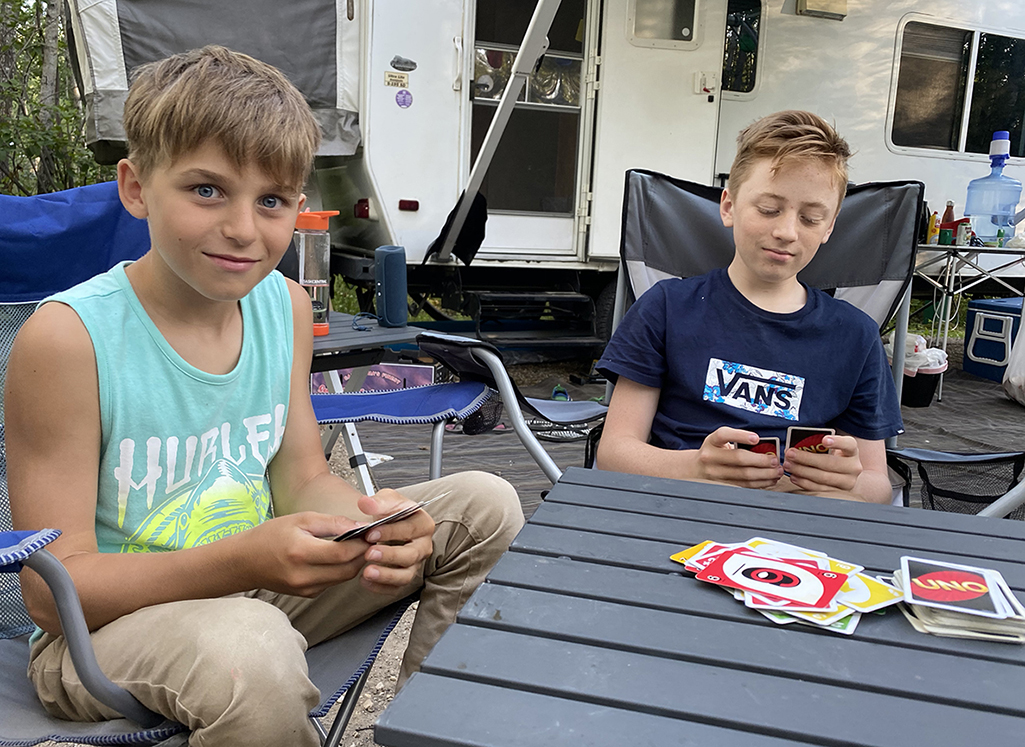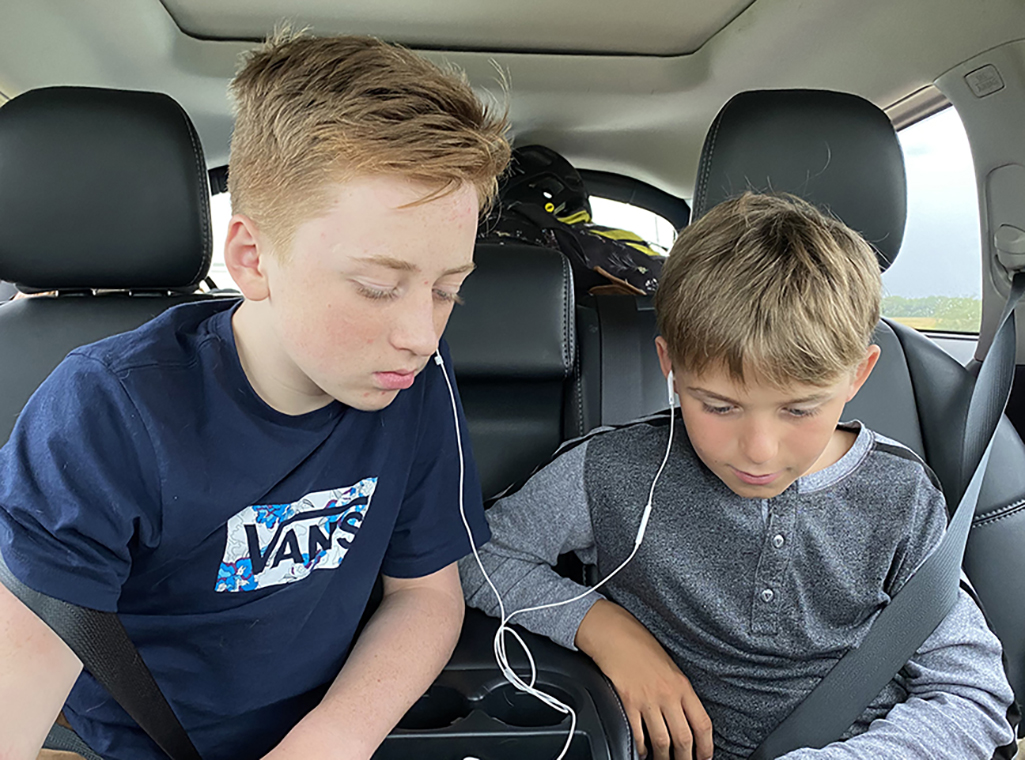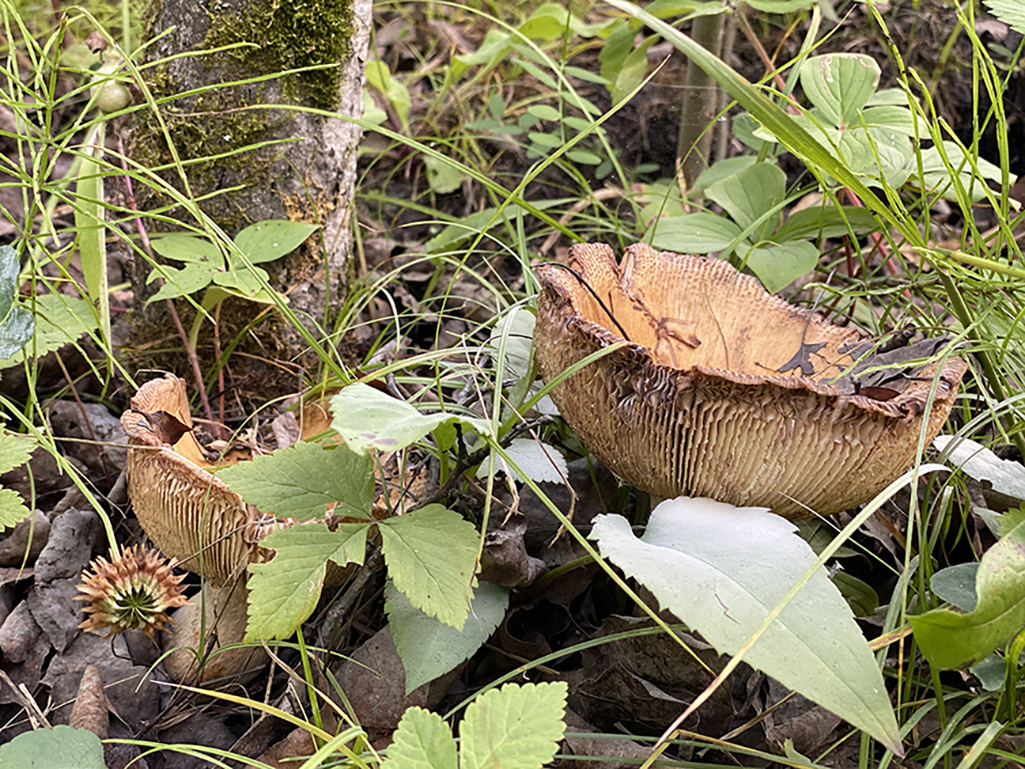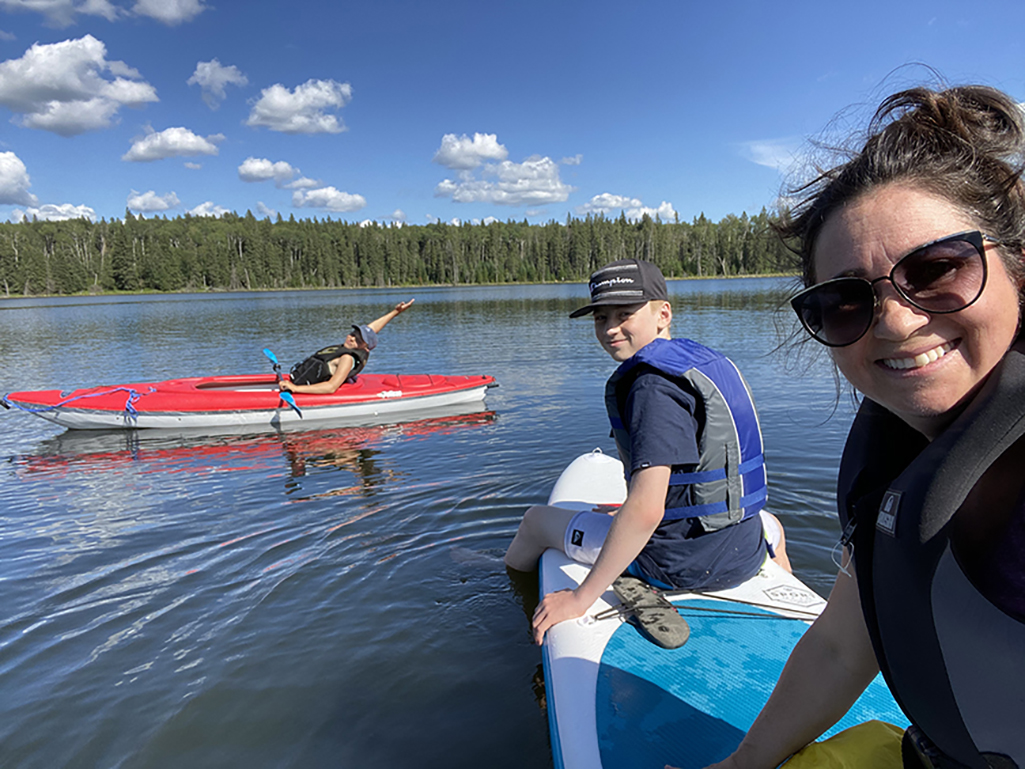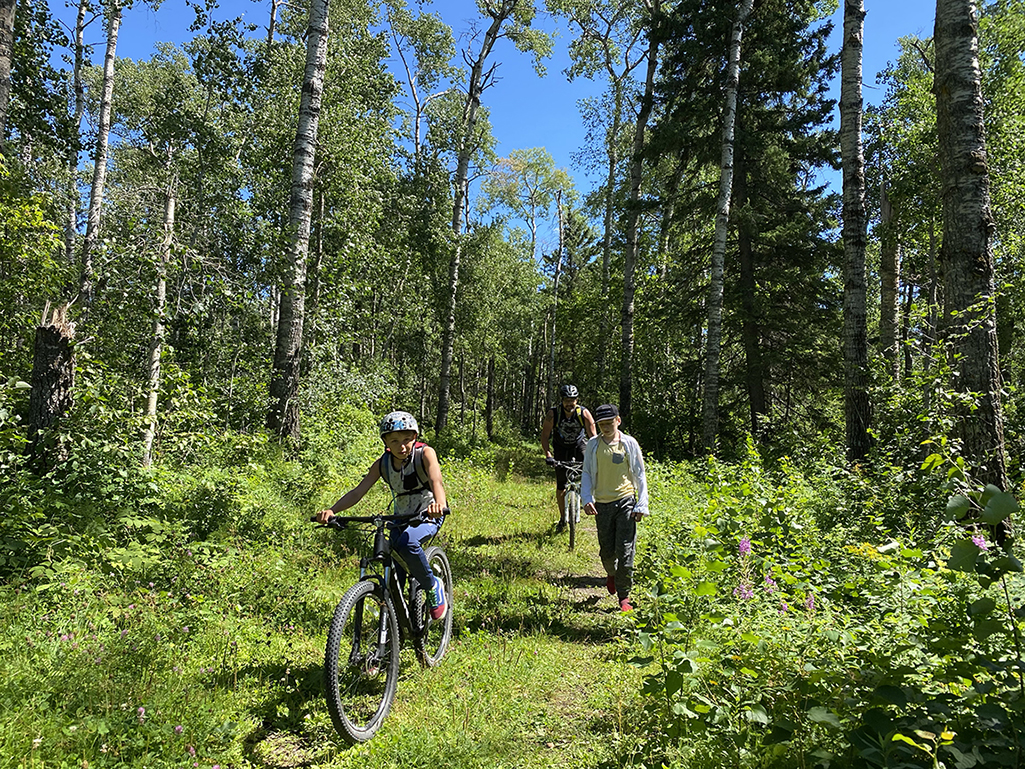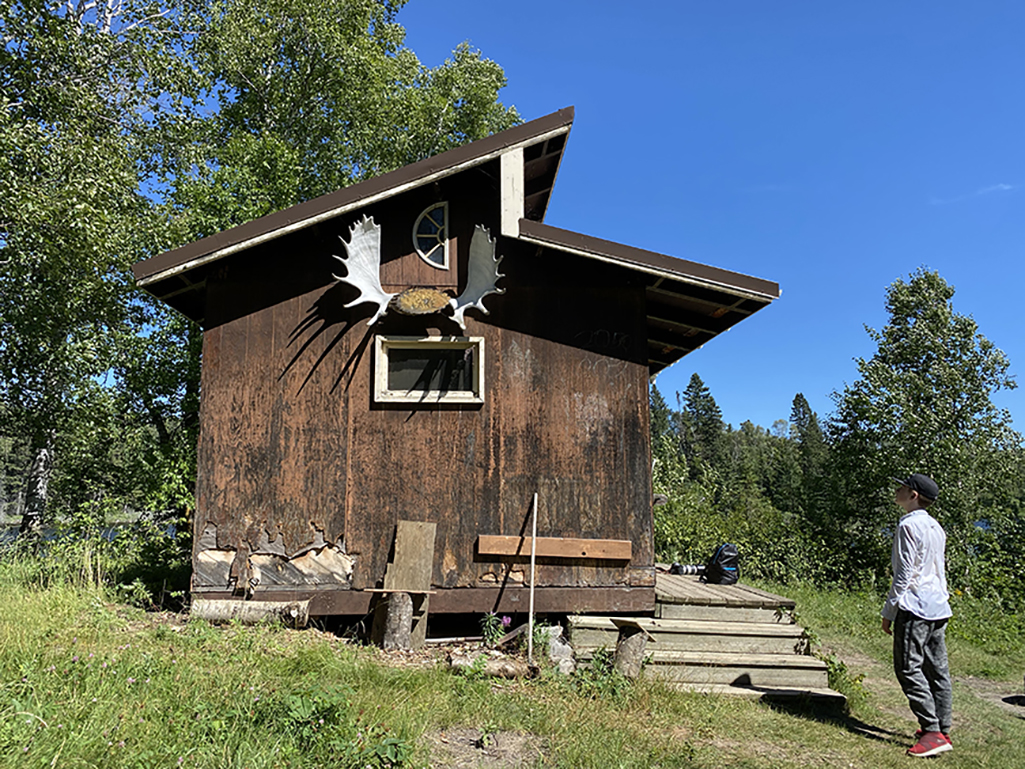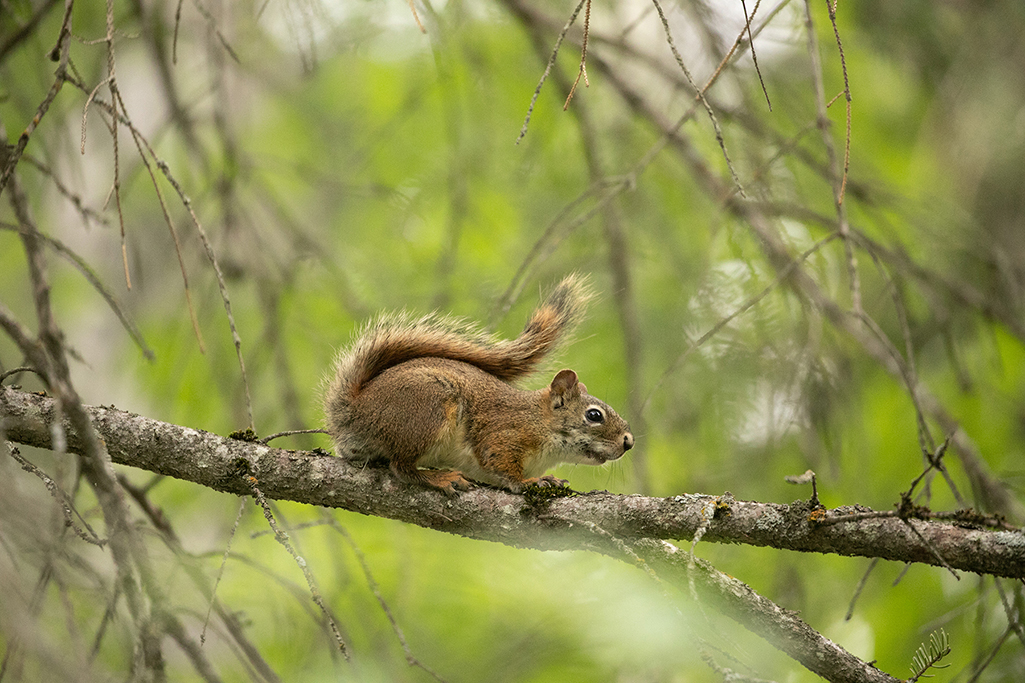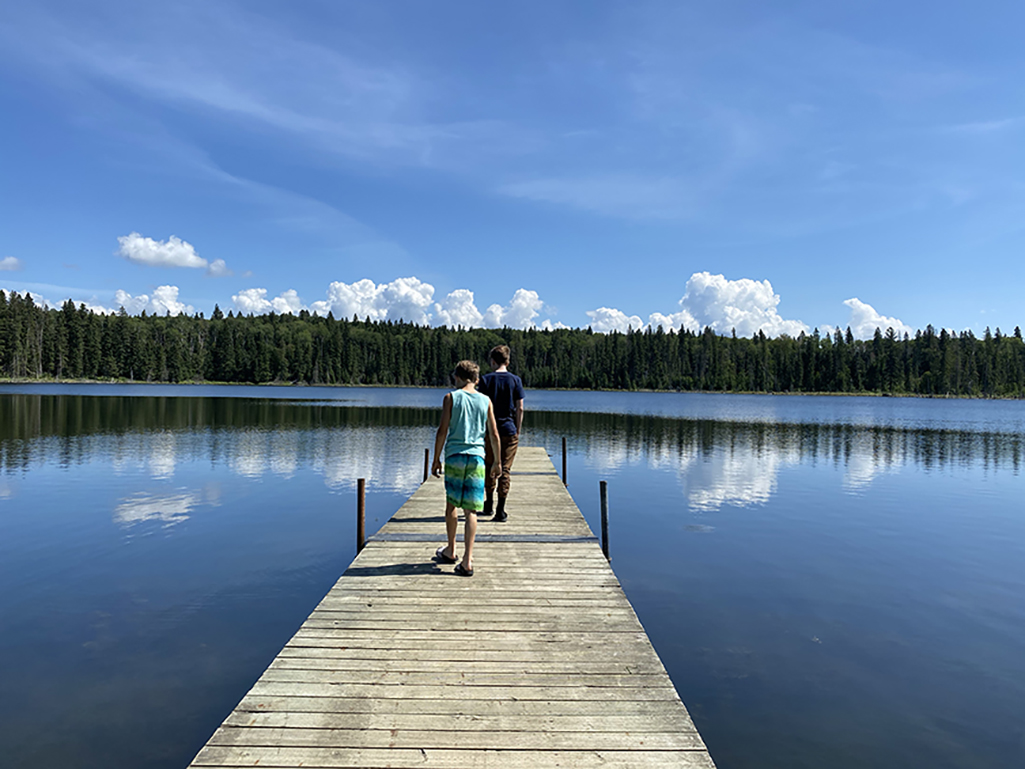[Surviving] Camping with Teens
It’s vacation time. You’ve spent weeks prepping and packing, drawing up meal plans and ensuring everything is taken care of for your relaxing camping getaway with the family. You’ve plotted roadside stops and are proud how prepared you’ll be for your time away.
There’s only one challenge standing in your way. Your children - more specifically, your teenage children.
Now, now, don’t get me wrong, I’m not anti-travelling-with-teens, however this article is based my own extensive experiences and the challenges my lovely children (I really do love them) can pose while vacationing – specifically while camping.
And, survive may be a bit of a strong word — after all camping is a privilege and we are darn lucky to have the means and ability to go. When I was young, it was the ultimate vacation, however I’d be lying by saying it’s my children’s top vacation choice. Leaving behind the comforts of home can be a hard sell. Though they always seem to end up enjoying camping trips, beyond the work and planning, it also takes a copious amount of patience.
It boils down to a few things. First, as pre-teen/teens, they are going through a lot of changes and really discovering who they are; push back seems to be a big part of the teen game. Second, my boys seem to have a love/dislike relationship, and this can be a challenge while spending nearly a week crammed in a small trailer. Third, prying them from technology (gaming withdrawal is a thing!) especially during these COVID days is darn near impossible, as is getting them to want to hang out with their mom. So, in order to make trips a success I spend oodles of time planning how I can curb teen hormones and sibling attacks, address boredom, battle sleep deprivation and avoid hangry-ness. Yes, I am always tired before we leave.
Then there’s the car ride, which is almost always a battle. Are we alone here? Having to drive somewhere for over an hour always causes objection but, in this case, I was made aware that our recent 3.5-hour road trip to Duck Mountain Provincial Park was equivalent to teen torture. And for that reason, it’s a time I allow technology to rule.
I planned only two very worthy stops along the way to inject some history and learning into the journey: Motherwell Homestead and the Melville Heritage Museum, but that plan quickly fell apart. Revolt and misguided rage left me outvoted. How I miss the days of curiosity and trust! When they were little, this wasn’t so hard but now at nearly 12 and 14 respectively, they’d rather binge on TikTok or watch pre-recorded Netflix shows to get them from point A to point B. I decide this isn’t my hill to die on.
Once within the park, things seem promising. The phones go down and they peer out the windows catching sight of a deer as we enter the southern tip of the lush boreal forest. At our campsite, they point out cool mushrooms and flowers, and of course find a giant branch that looks like a bazooka gun. They help unpack what they can and set up some games before eagerly hopping on their bikes to explore.
After set-up, we go for a drive to get our bearings and find a place to test out our new water toys we’ve toted along: kayaks and a stand-up paddle board (SUP). After a long drive past Batka Lake and to the Duck Mountain Ski Area, we circle back to find Jackfish Lake. Found across the highway from the campground entrance, it’s an ideal spot for trying out our gear in the a.m.
The morning excursion comes with spirited protest, but I don’t back down. These were not easy items to bring along and I’d be darned if they didn’t get used. After nearly being involved in an inflatable kayak explosion that leaves us two “water seats” short, we make do with one kayak and a SUP and set out on the small, picturesque, calm lake.
My oldest is a natural in the kayak and takes off leaving me behind to paddle with my pre-teen who’s doing his best to slow me down by dragging limbs in the water. I don’t mind though. I’m elated that they both seem happy and more so, that we are finally spending some time together doing something active outdoors. We paddle up to a beaver dam (there are TONS in the park), spot a family of Eared Grebes and scour the shoreline for black bears. Before leaving, my youngest takes a spin in the kayak – loving it as much as his big brother.
Later that evening, we check out the Damselfly Nature Trail, a short trail mere steps from our campsite which takes us to the Benito Subdivision and St. Michael’s Camp where the Holy Eucharist Church is found. My youngest poses with a pair of angel wings created by Italian art studio, Ferdinand Stuflesser, dated 1875. My oldest refuses.
The next few afternoons are designated beach days which are always a hit. Finding a spot safely isolated from other beachgoers, we spend two afternoons enjoying the sunshine and water. A new appreciation for the SUP is realized and all of us take turns paddling, playing games of catch and tackle, and sunbathing on the shores of Madge Lake.
Then starts the insistent begging for the dreaded mini-golf excursion.
Maybe for some, this is a time where the family bonds over sweet putts and the occasional hole in one. For us, it’s a painful and consistently exhausting exercise that almost always turns into a not-so-friendly-competition. We give in however as the boys have been getting along pretty well. Unsurprisingly, it starts off rough but takes a turn at Par 3 when the threat of not getting ice cream after golfing spurs suddenly pleasant behaviour.
Later, we make the decision to check out the Woodland Nature Trail on our bikes leaving behind my eldest who wants to unwind hoping that this will increase the odds of a nice evening ahead. Starting in the campground at the Jubilee cabin subdivision, the woodsy 1.5-4km trail offers variety and follows at times along the water’s edge. We spend nearly an hour and a half riding and come back exhausted but all smiles. It’s time to sit around the campfire, devour smores and play some cards.
The last two days of our trip are cooler weather-wise, and I can tell that the boys need space. This comes in the form of sibling blow-ups, tears and firm words to remind them of how “lucky” they are to be here. We urge them to take a break from us and each other and head out on their bikes, to enjoy some quiet time. This keeps the peace for the evening, thankfully.
The last afternoon presents us with the perfect weather for one last outing – me and my eldest will hike trails at Batka Lake and the other two will set out on bikes. To our great surprise, the trek is met without resistance.
The nearly 7km path me and my son pick out will take us to the Moose Lake shelter and back. I’m glowing with appreciation for the moment. Spending time with him is enjoyable and I’ve missed it. He’s more open than normal to talking (a rarity these days) and I see glimpses of the curious boy from years earlier but also the wise young adult he’s morphing into.
He has an eye for spotting and points out a caterpillar, squirrel and numerous frogs he finds along the trail. I tell him the names of some flowers such as beebalms, golden rods and woolie burdock that are lining the path, and we both keep our eyes open for a Pileated Woodpecker we hear from time to time. He shares with me his tactics for fending off black bears and teaches me how to figure out the direction by observing which way moss grows on trees, should we become lost. He’s never loved hiking, but I’m impressed with the effort and attitude during the 1.5-hour amble.
A good time was also had with my youngest son who by the way, also pointed out (and caught) numerous frogs along the 16km of trail he and my partner rode. Starting out at the same point, the two impressively tackled overgrown expert trails despite nearly losing a shoe each to muck, ending their ride near the Fire Tower Trail.
The drive home is quiet and everyone seems relaxed and happy – and even though there are several ups and downs that always seem to accompany these camping trips, I can’t help but look forward to “surviving” the next one. Though I can’t be certain, one day I think they’ll look back and appreciate all the times we “dragged them” out camping. After all, would they really be teens without any pushback?
Here are my top tips for (attempting to ensure) a good time camping with teens:
- Bring the goods – especially things that encourage activity: Bikes, boats and water toys + treats to get you through the car ride, stave off hangry episodes and to enjoy together (like smores).
- Keep them hydrated and well-rested. Dehydration and hunger make them bloody near impossible to deal with at this age. Add in tired, and the mood level drops to near irreparable levels. With that said, let them sleep in and enjoy some quiet time to yourself.
- Encourage independent activity and exploration. This is why you toted those hard to pack bikes all the way.
- Follow their lead and find middle ground. Have them assist with the days plans and be open to how the day rolls.
- Give them tasks around camp. Not only are you keeping them busy, you are teaching them things they’ll need to do when they camp as adults.
- Plan for designated “family time”. Go for a nightly walk or head out on a bike ride together.
- Get them back into nature. Consider posing a challenge that comes with a reward. Ok it may be a bribe, but it works for me. Ask them to identify a bird or create a fun scavenger hunt. We have a car hawk counting competition.
- Encourage them to point out things they find interesting and then listen to understand why.
- Lastly, pick your battles and negotiate. Vacation should be a (mostly) fun time for everyone, so be sure to try and strike a good balance.

